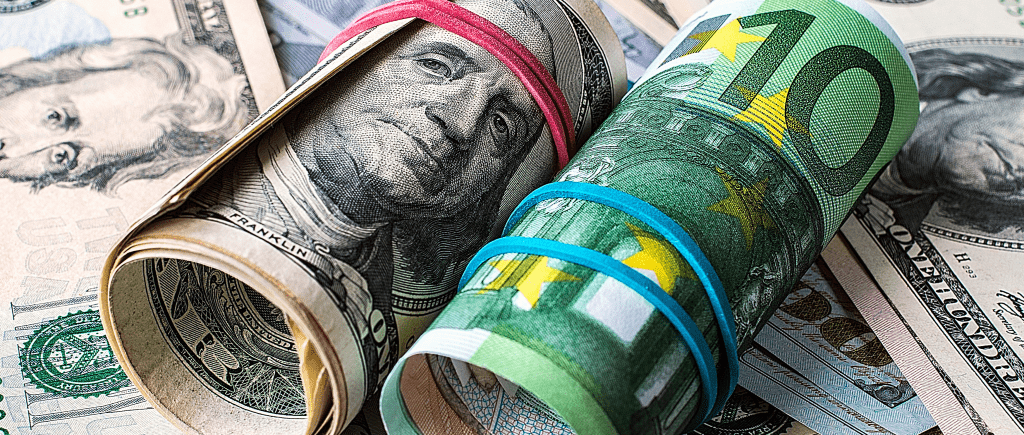The euro fell broadly on Thursday after weak PMI data in Germany and France underlined the difficulties facing the euro-zone economy, prompting investors to lower their bets on a massive interest rate hike by the European Central Bank.
A preliminary survey on Thursday showed that the German economy, Europe’s largest, lost much of its momentum at the end of the second quarter of the year due to declining exports and the impact of economic uncertainty and rising inflation on domestic demand.
The French Purchasing Managers’ Index fell to 51 points from 54.6 in May, well below the level of 54 points that had been expected.
After the data, markets adopted expectations for a 30 basis point rate hike in July, instead of Monday’s 34 basis point.
The euro fell against the dollar 0.6 percent to $1.0498, falling below $1.05 for the third time this week.
The Norwegian krone was among the currencies that gained the most against the euro on Thursday after the central bank raised interest rates by 50 basis points earlier Thursday.
The euro’s losses supported the dollar and pushed it higher against its rival currencies, after cautious comments made by Federal Reserve Chairman Jerome Powell on Wednesday.
 Noor Trends News, Technical Analysis, Educational Tools and Recommendations
Noor Trends News, Technical Analysis, Educational Tools and Recommendations





